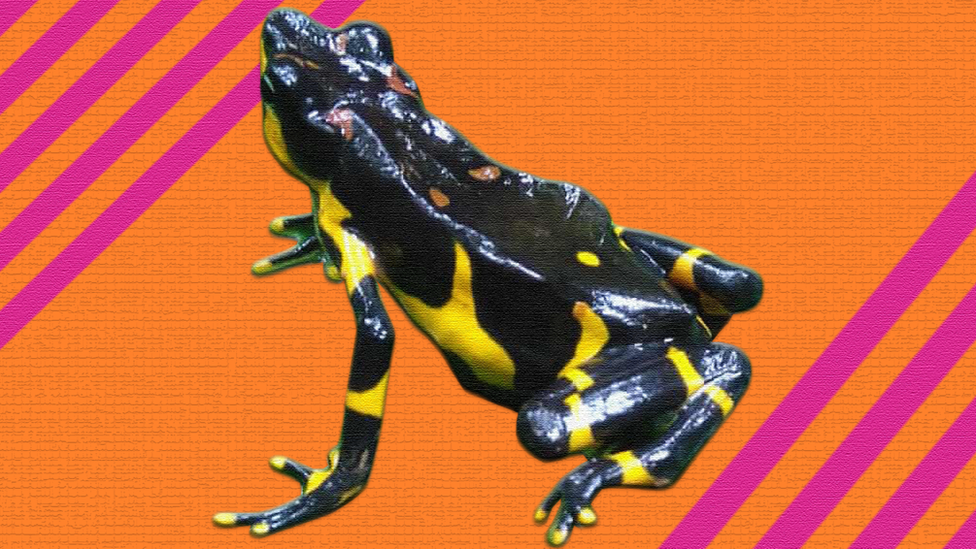Super rare toad bred in UK
- Published
- comments

One of the world's rarest toads has laid its eggs in captivity for the first time, in a move that scientists hope will help secure its future.
The critically endangered, harlequin toad - called Atelopus varius - has been bred by experts in Manchester.
Usually, the yellow and black toad lives deep in the central American rainforests of Panama and Costa Rica.
One of the reasons why it's so endangered is because it lays its eggs in really unstable conditions, breeding only in rough streams filled with stones and boulders.
Wild clown frogs like this one found in Soberania National Park of Gamboa in Panama used to be much more common in Central and South America
Scientists from the University of Manchester visited the natural breeding locations in Panama and Costa Rica in order to make sure that it could be recreated properly in lab conditions.
They re-created the temperatures, water levels and water flow in captivity and used special lighting.
Andrew Gray, curator of herpetology at the Manchester Museum, said: "The university is the only institution outside Panama to house these frogs. It's a huge responsibility the team do not take lightly.
"So we're over the moon we've achieved the first captive breeding of this remarkable species. Our success heralds the next chapter for more innovative amphibian conservation work."
If the species goes extinct in its native habitat, tadpoles could be bred in captivity and reintroduced.
According to the International Union for Conservation of Nature, the toads are endangered because of factors including climate change, habitat destruction and hunting.
The toad, which is sometimes known as a "clown frog", used to be found all over Costa Rica.
However, populations fell thanks to the rise of the international pet trade in the 1990s where exotic animals were transported out of their natural habitats for people to buy and sell.
They are also threatened by a prominent type of fungus in Costa Rica called chytrid fungus, which is poisonous to them.
- Published6 March 2021
- Published6 March 2021
- Published6 March 2021
